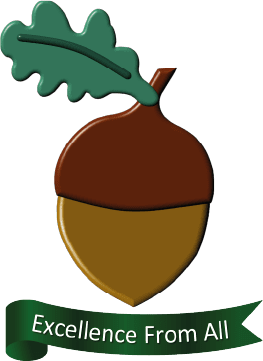Modern Foreign Language Subject Leader: Mrs Green
At Cliffe Woods, we teach modern foreign languages to support the understanding of a multicultural world. Learning a foreign language is part of the primary National Curriculum and is a requirement for all children within Key Stage 2 (KS2). Cliffe Woods has adopted a whole school approach to the teaching of German, Spanish and French to all KS2 pupils.
Intent
In our MFL curriculum, we strive to enable children to express their ideas and thoughts in German, Spanish and French languages and to understand and respond to its speakers, both in speech and in writing. In line with the 2014 National Curriculum for MFL, our aim is to develop the confidence and competence of each child in the foreign language they are learning. Our goal is for them to be passionate, curious and confident about their foreign language learning abilities when they finish the primary school phase of their education.
We will help them develop and demonstrate progress in the 5 key language skills necessary for learning German (Year 3 & Year 4), Spanish (Year 5) and French (Year 6).
- Speaking
- Listening
- Reading
- Writing
- Grammar
Our objective is to ensure that pupils of all abilities develop solid foundations in these key language learning skills – properly preparing them for the next stage of their language learning journey. These skills will develop children’s ability to understand what they hear and read and enable them to express themselves in speech and writing. We will extend their knowledge of how language works and explore the similarities and differences between the foreign language they are learning and English. We will also help strengthen their sense of identity through learning about culture in other countries and comparing it with their own.
We aim to:
- Provide an opening to other cultures
- Foster pupils’ curiosity and deepen their understanding of the world
- Provide opportunities for them to communicate for practical purposes
- Learn new ways of thinking
- Equip pupils to study and work in other countries.
In this way they will:
- Understand and respond to spoken and written language
- Speak in the target language with increasing confidence, fluency and spontaneity
- Find ways of communicating what they want to say
- Continually improve the accuracy of their pronunciation and intonation
- Write at varying lengths
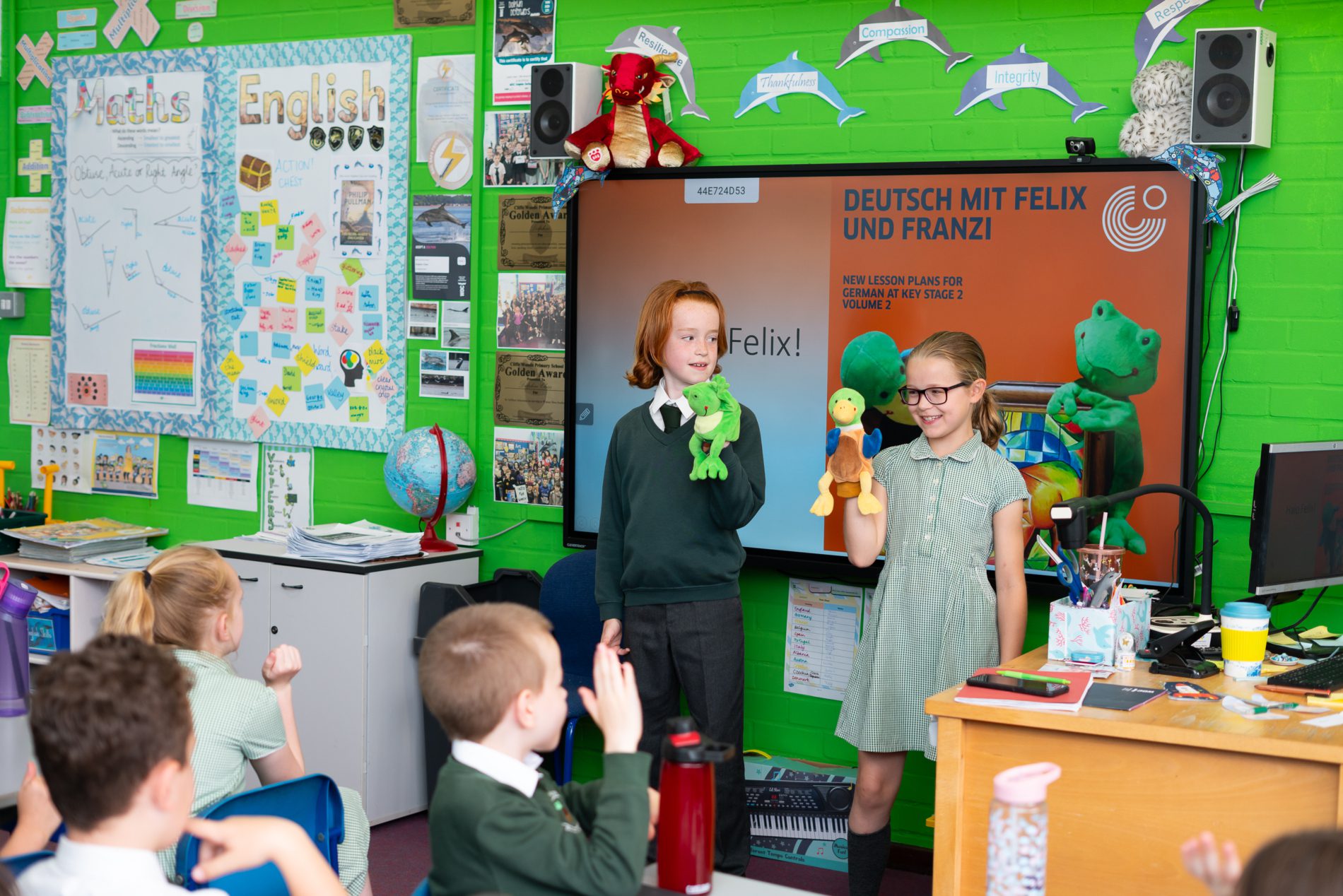
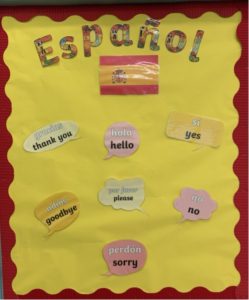
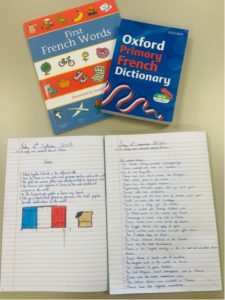
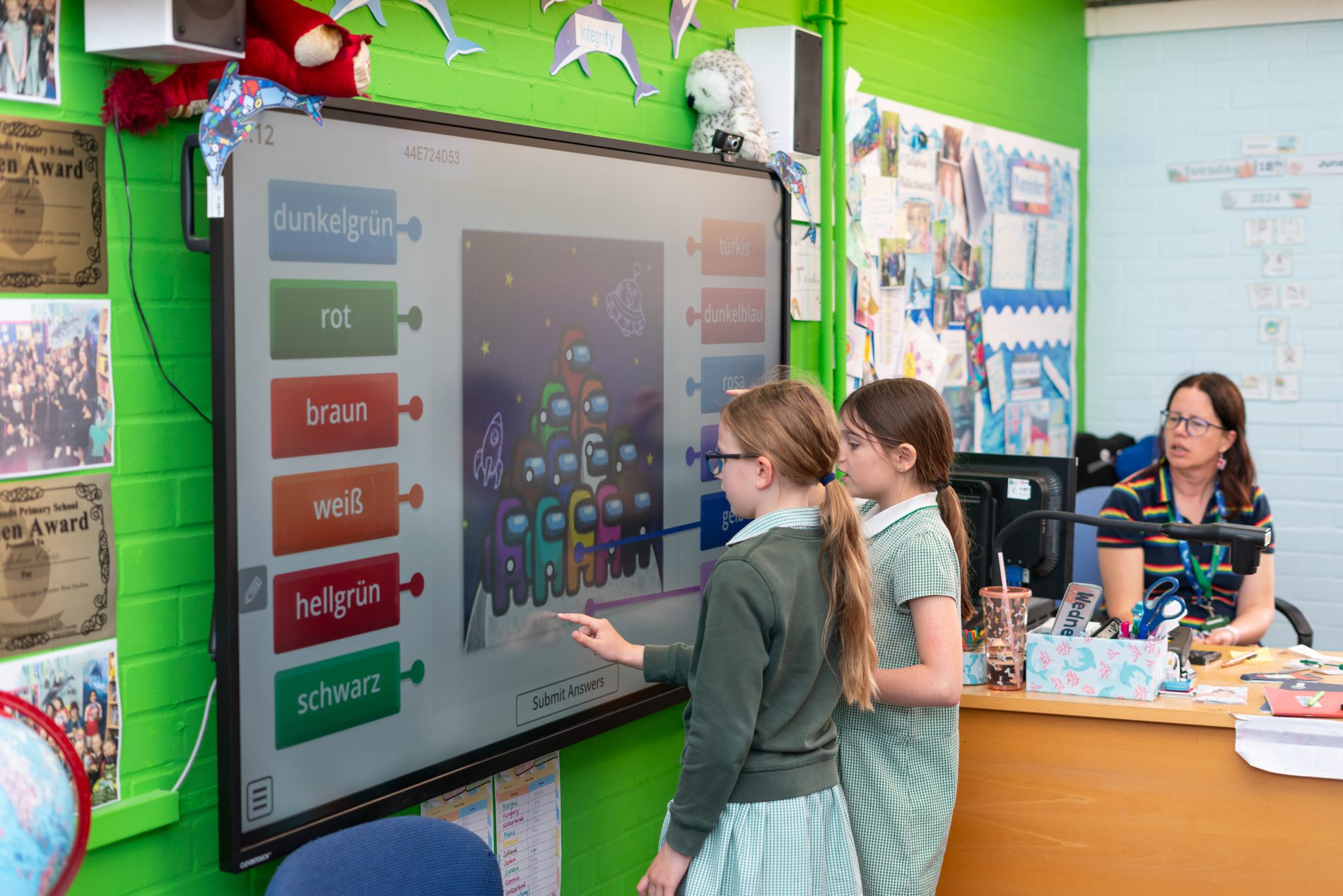
Implementation
Implementation
German (Year 3 and Year 4), Spanish (Year 5) or French (Year 6) is taught weekly in all KS2 classes. Over the year, children will progress in speaking, listening, reading, writing and grammar as well as be taught the culture of each country.
The skills covered through topics of work will include:
- Listen attentively to spoken language and show understanding by joining in and responding.
- Explore the patterns and sounds of language through songs and rhymes and link the spelling, sound and meaning of words.
- Engage in conversations; ask and answer questions; express opinions and respond to those of others; seek clarification and help.
- Speak in sentences, using familiar vocabulary, phrases and basic language structures.
- Develop accurate pronunciation and intonation so that others understand when they are reading aloud or using familiar words and phrases.
- Present ideas and information orally to a range of audiences.
- Read carefully and show understanding of words, phrases and simple writing.
- Appreciate stories, songs, poems and rhymes in the language.
- Broaden their vocabulary and develop their ability to understand new words that are introduced into familiar written material, including through using a dictionary.
- Write phrases from memory, and adapt these to create new sentences, to express ideas clearly.
- Describe people, places, things and actions orally.
- Understand basic grammar appropriate to the language being studied, including (where relevant): feminine, masculine and neuter forms and the conjugation of high-frequency verbs; key features and patterns of the language; how to apply these, for instance, to build sentences; and how these differ from or are similar to English.
These skills will underpin the lessons we deliver. Opportunities will be taken to positively promote equality and diversity. In addition, a German afternoon to immerse children culturally will take place over the year which will help inspire them and help them to flourish on their learning journey of languages.
Displays of the topics being taught in German, Spanish and French will be displayed around classrooms or will feature on a general school board.
Impact
Our approach to the curriculum results in a fun, engaging, and high-quality language education which also equips the children to cope better with the expectations of this subject after primary school and indeed overall language in further education and future workplaces. The skills we teach should enable them to have a basic knowledge of German, Spanish and French and provide a platform to build from enabling them to pursue a wide range of interests and vocations in the next stage of their lives.
The quality of children’s learning is evident in their books and evidence activities across the school. Evidence such as this is used to feed into teachers’ future planning, and misconceptions and knowledge gaps in languages can be retaught either when teaching other curriculum areas through cross-curricular links or the following year (German) when previous topics are revisited at a higher level. This supports varied paces of learning and ensures all pupils make good progress.
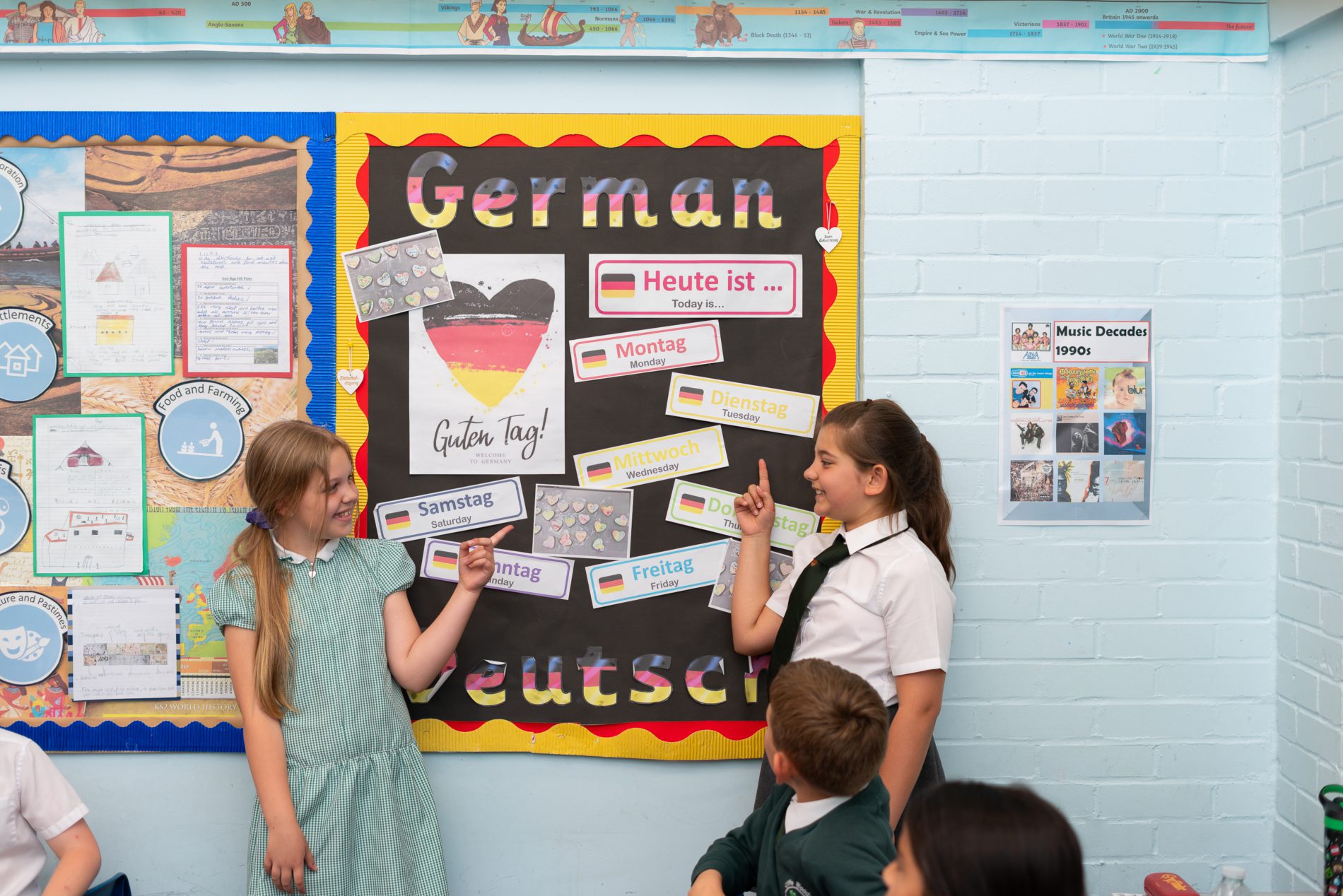
Modern Foreign Language in Each Stage
Although modern foreign languages are not taught in formal lessons before Key Stage 2, we believe early exposure to a range of languages provides children with an opening to other cultures and the opportunity to widen their vocabulary.
Our pupils explore foreign languages in an informal sense as they learn simple greetings and common phrases, along with some of the culture and customs of the country the language originates from. They have the opportunity to celebrate European Languages Day, attend language clubs, explore traditional food of the country and typical celebrations. This helps our pupils to appreciate and learn about cultures and communities other than their own, preparing them for life in our diverse country.
In Key Stage 2, the children study German, Spanish and French. They learn a range of spoken phrases and passages, including numbers, colours, animals, clothing, body parts and food. They have opportunities to develop their growing vocabulary through the practice of asking and answering questions along with discussing their interests.
In MFL lessons, children work on reading and understanding short passages or texts written in German, Spanish and French, and writing short sentences from memory.
Pupils find out more about life in Germany, Spain and France by studying typical culture and customs. They explore events such as Epiphany, Karneval and celebrations such as birthdays, along with learning about everyday life and making comparisons between this country and where they live.
Modern Foreign Language Progression
SEND Information
We aspire to ensure that SEND and disadvantaged children are given the necessary support in class to fully access the learning of German, Spanish and French and embrace the culture of those countries.
Modern Foreign Language Extra Resources
Fun German Games
